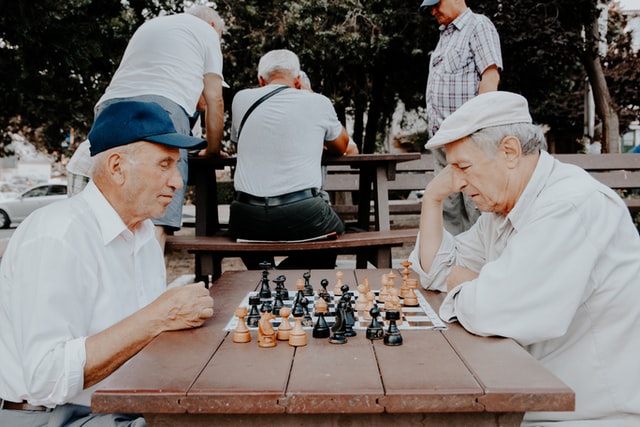Slowly but surely, we’re beginning to gain a better understanding of what causes Alzheimer’s Disease and what can be done to slow the progression of this degenerative disorder. Every patient is different, and the disease progresses at different rates, but new studies are showing that certain activities can help many Alzheimer’s patients to delay the progress of the disease and remain active and aware for longer.
Even if you’ve decided to care for your loved one yourself and you’re always there in home care, you could be doing a lot more than just looking after an Alzheimer’s patient in your home. With proper stimulation you could actually help your loved one retain memories, remain engaged, participate in relationships, and avoid stress, anxiety, and depression.
Whether you elect to place your loved one suffering from Alzheimer’s into a full-time care facility or you choose at home instead senior care, you have the ability to improve their quality of life. How do you figure out which activities are likely to be the most stimulating for your loved one? Here are a few things to try.
-
Read, Do, Puzzles, Play Board Games or Cards,
Everyone has interests, which means everyone can enjoy reading. It’s also an activity that you and your loved one can do together. If your loved one is unable to read, you can read aloud, but try to select subject matter than you know the person enjoys, whether it’s adventure novels, celebrity memoirs, or the pages of The Wall Street Journal.
Puzzles can also help to keep the wheels of cognitive function turning. See if your patient is interested in crosswords, Sudoku, or other types of problem solving, but make sure to track the frustration level throughout. You want stimulating activities to have positive outcomes as much as possible.
-
Do Chores
Nobody really likes doing household chores, but it’s something that most of us do for most of our lives, and familiar activities can be comforting when nothing else makes sense. Something as simple as folding laundry could help to calm your loved one and provide a sense of accomplishment, both of which can be beneficial.
-
Resurrect Old Hobbies
Before you tackle potentially harmful hobbies like sports, you might want to check in with doctors and home care associates to make sure the patient in question is capable of participating safely. That said, returning to a patient’s interests can help to stimulate memories, engagement, and positive emotions.
If your loved one enjoyed sports but can no longer toss a ball, watch games together on TV. Or think of other, less dangerous hobbies the patient enjoyed that you can do together, such as art, baking, gardening, and so on. Keeping an Alzheimer’s patient engaged on a physical, mental, and emotional level is one of the best ways to provide positive stimulation.
-
Play Music
Scientists have long been aware of the fact that music stimulates specific parts of the brain and has the power to elicit emotions and stir memories. All of these effects can prove beneficial to Alzheimer’s patients, which is why music therapy has become a popular option for patients at various stages of the disease.
If you’re caring for your loved one at home Birmingham AL, you might consider playing music as a means of eliciting calm and tranquility, enjoying an activity together, or even dancing for physical fitness and coordination. If your loved one played an instrument, perhaps he/she can participate in making music.
Research has shown that many people with diseases involving cognitive impairment can still benefit from listening and moving to music. Selecting music that your loved one finds stimulating in some way may take trial and error, but if you already know what kind of music they enjoyed, the process is easier.
-
Look at Family Photos or Watch Videos
It’s important not to place too much pressure on Alzheimer’s patients to remember specific people or incidents, but looking at photos, watching family videos, and offering gentle reminders of who’s who can provide some comfort and perhaps help to extend the memory of the patient.
You don’t necessarily want to focus on results or get too hyped up when your loved one remembers things. Just try to remain positive and create an enjoyable experience for your loved one.


